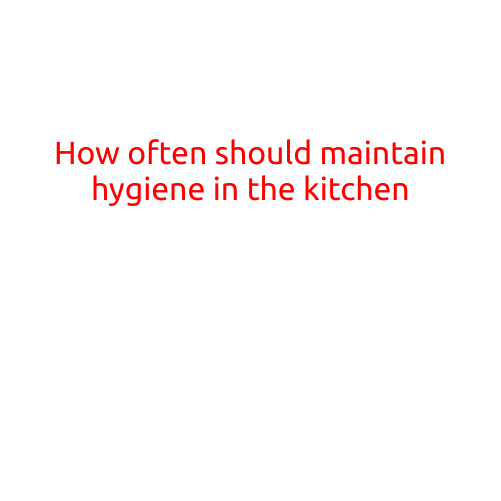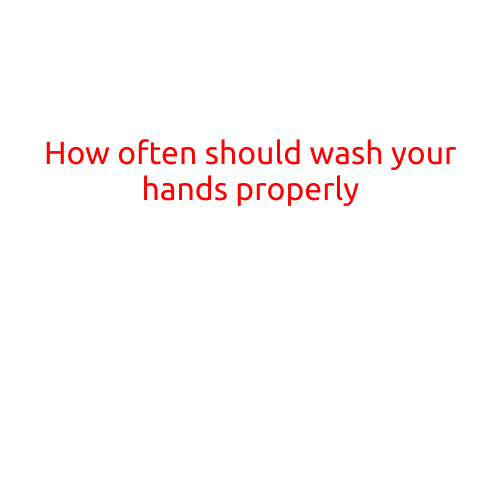
How Often Should You Maintain Hygiene in the Kitchen?
Maintaining hygiene in the kitchen is crucial to prevent the spread of bacteria, viruses, and other microorganisms that can cause illness. Foodborne illnesses can be debilitating and even life-threatening, especially for the vulnerable populations such as the elderly, young children, and people with compromised immune systems.
The kitchen, being a breeding ground for bacteria, requires regular attention to keep it clean and hygienic. Here’s a breakdown of how often you should maintain hygiene in your kitchen:
Daily Cleaning
- Wash your hands: Before and after handling food, wash your hands with soap and warm water for at least 20 seconds.
- Clean up as you go: Wipe down countertops, sinks, and stove tops after each use to prevent crumbs, spills, and sauces from building up.
- Sweep and mop: Sweep and mop the floors daily to prevent dust, dirt, and debris from accumulating.
- Clean appliances: Clean appliances such as dishwashers, refrigerators, and ovens regularly to prevent bacterial growth.
Weekly Cleaning
- Deep clean: Deep clean high-touch areas such as faucets, door handles, and light switches with a disinfectant solution.
- Clean cabinets and drawers: Clean and organize cabinets and drawers to prevent pests and rodent infestations.
- Dust and vacuum: Dust and vacuum all surfaces, including ceiling fans, light fixtures, and corners, to prevent dust buildup.
- Clean sink and stove: Clean the sink and stove with soap and water to prevent grease and grime buildup.
Monthly Cleaning
- Deep clean the refrigerator: Take everything out, wipe down the shelves and walls, and clean the refrigerator coils.
- Clean windows: Clean windows to prevent dirt and grime buildup and to allow natural light to enter the kitchen.
- Clean out the microwave: Clean out the microwave with a damp cloth to prevent food residue buildup.
- Check expiration dates: Check expiration dates of food items and discard expired or spoiled food to prevent foodborne illnesses.
Additional Tips
- Wear gloves: Wear gloves when handling raw meat, poultry, and seafood to prevent cross-contamination.
- Separate raw and cooked food: Separate raw and cooked food to prevent cross-contamination.
- Keep receipts: Keep receipts and inventory of food items to track expiration dates and prevent expired food from sitting on shelves.
- Regularly inspect: Regularly inspect your kitchen for signs of pests, stains, and wear and tear to prevent damage and ensure hygiene.
By following these guidelines, you can maintain a clean and hygienic kitchen that prevents the spread of bacteria and viruses, ensuring a safe and healthy cooking environment for you and your loved ones.





